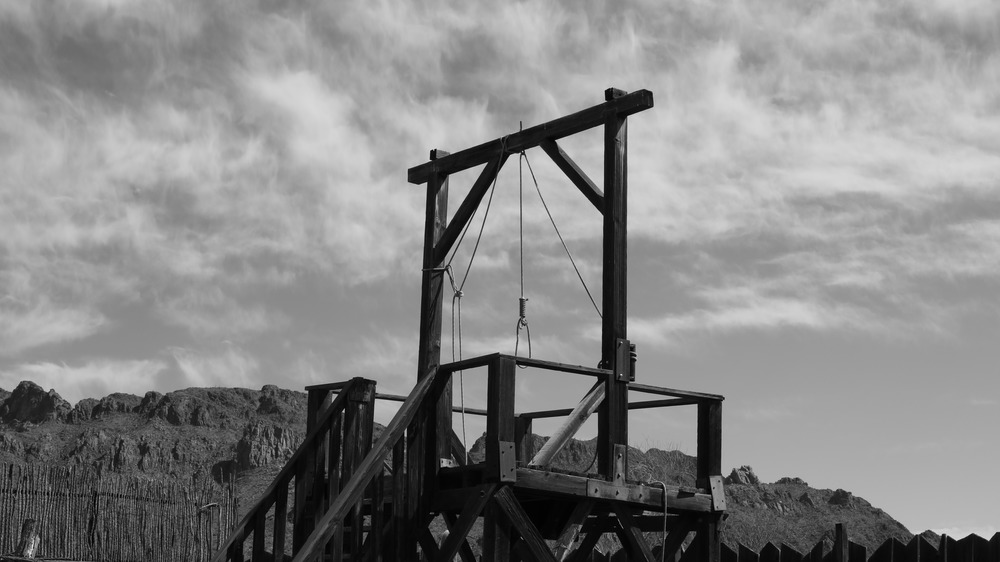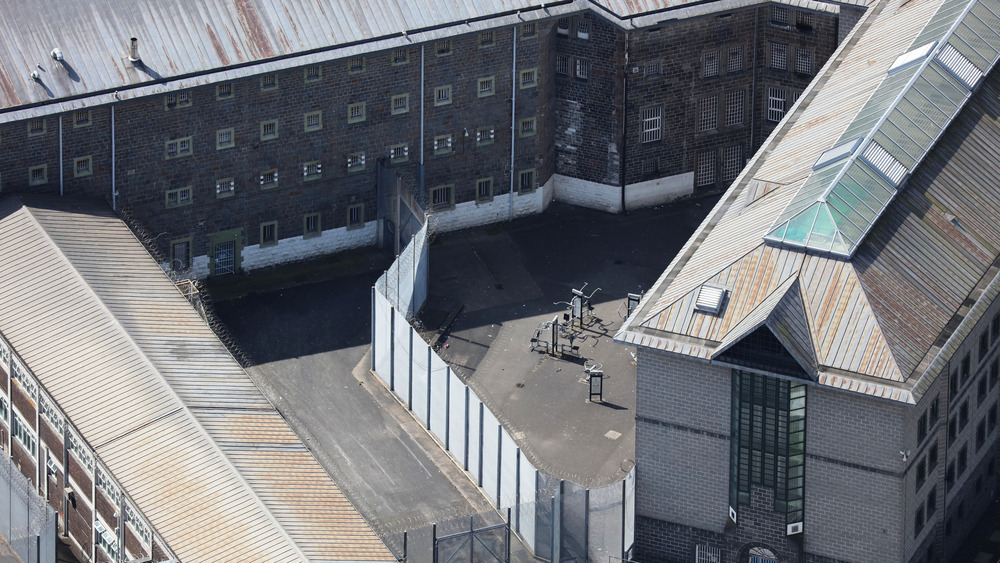When The Last Criminal Was Hanged In The US Might Surprise You
Billy Bailey's last meal was steak, well-done with steak sauce, a baked potato with sour cream and butter, buttered rolls, peas, and vanilla ice cream. Then, just before midnight, the 49-year-old from Smyrna, Delaware, was escorted up 23 steps and was placed on a trap door on a platform in the January cold. He was asked by the prison warden if he had any last words. "No sir," Bailey replied, the AP reported at the time. Prison officials then placed a black hood over Bailey's head, and they slid a hangman's noose around his neck, tightening it below his chin. Bailey made his hands into fists, bracing himself for what was to come. Guards flanked Bailey with their own hoods on, shielding them from what was about to transpire. At 12:04 a.m., the warden pulled the lever with both hands, the trap door opened, and Bailey dropped 10 feet. His body spun several times before guards lowered a tarp around him, according to a UPI report. The official time of death was 12:15 a.m.
The year was 1996.
Billy Bailey chose to be hanged
Billy Bailey's was the first hanging in Delaware since 1946, and only the third in the entire country since 1965. In 1986, Delaware made lethal injection the official method in cases of the death penalty. But Bailey had been sentenced to death in 1980 for killing an elderly farm couple without provocation in 1979, and he chose to be killed according to his original sentence. "I'm not a dog," Bailey told a prison visitor, the Independent reported. "I'm not going to let them put me to sleep."
"Medieval" is what Bailey's lawyer, Edmund D. Lyons, called the execution. "The most chilling thing was the two fellows up on the platform with Bill with the hoods on their heads," Lyons told The Washington Post. "If we are proud of what we've done today, ask yourself why we do it in the middle of the night. If we are proud of what we've done today, ask yourself why we hood those who are part of the execution."
It wasn't until 2003 that the gallows in Delaware were torn down, because, according to the Baltimore Sun, it took that long before none of the state's death row inmates remained eligible to opt for hanging over lethal injection.

